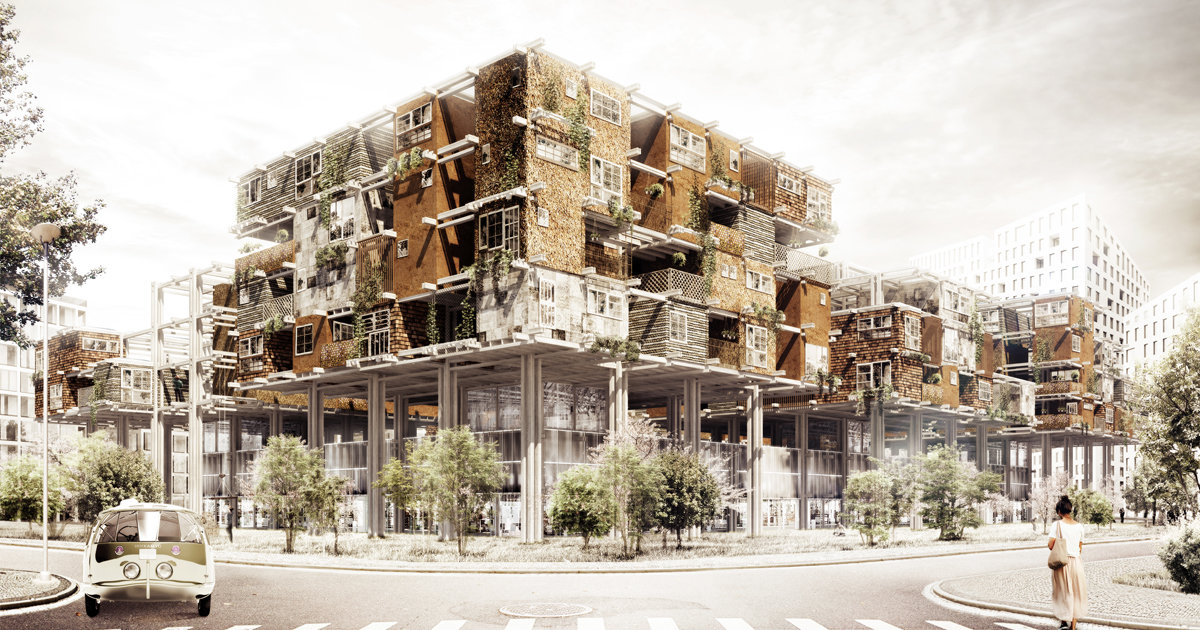
The project is an experimental housing structure arising from the slow-life philosophy and low-tech architecture. Its essential element is vertical village in which fragments of space were devolved to the inhabitants, so that within it they can decide about their own houses.
Relations between the houses are regulated by the spatial game. It consists of simple rules that determine the location, mutual distance, size and geometry of houses. The game also provides access to communication, services and sunlight. Spaces between houses serve as a small, private gardens, courtyards and community meeting places. The game allows to build various housing units for residents with different needs so that all the houses can fit individual requirements, financial capability, the way and pace of inhabitants life.
The project is based on the DIY idea (inhabitants build their houses on their own following the rules of the game). That is why they were provided with simple technologies from local, natural, recycled and easily accessible materials (fabric, wood, paper, straw, clay). For each of them I designed a complete building system and prepared real sized prototypes to check their properties.
Vertical village is complemented by a multifunctional hall with a large open space on its ground floor. The primary purpose of the hall is workshop with machinery park used by the residents to prepare building materials. The hall is also a center of social activity and place to run a small business.
The project is a result of student's interests in the issues of spatial structures for the future cities and in the contemporary architectural, urbanistic and technological challenges in shaping housing architecture. The theoretical part of the project contains interesting analyses of contemporary trends in designing low-tech architecture (from the neo-modernist aesthetics, through references to the tradition, the upcycling, the temporariness, up to the vernacular architecture) as well as – an analysis of psychological and social processes, lying at the foundations of the low-tech philosophy (participation, atavist space concept, slow life).
The author proposed an interesting idea of housing structure formation on the basis of the algorithm of the Game of Life. This algorithm enables to generate variant spatial arrangements of housing units.
The design is a consistently conducted architectural and urbanist concept. The architectural form completely conforms to the conceptual assumptions of the slow-life philosophy and the low-tech architecture. It is worth paying special attention to the variability of functional and spatial solutions of housing units, to the clarity of structural and material solutions as well as to the precise solutions of details for different types of low-tech materials. The project is original and experimental. The architectural vision has in itself a potential of a utopia, resulting from the quest for harmony in shaping housing architecture.